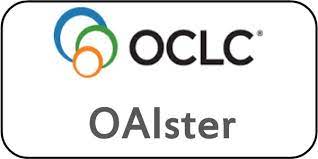Clinical Experience with Triple Drug Combination Efficacy and Patient Treatment Survey – The TRICEPT Study
Expert Perspectives on Triple Drug Therapy in Type 2 Diabetes Management in India
DOI:
https://doi.org/10.59793/8wjgn080Keywords:
HCPs,, survey,, prescribing priority,, triple drug therapy,, glimepiride,, metformin,, sitagliptinAbstract
Type 2 diabetes (T2D) is a progressive metabolic disorder that often requires multiple medications to achieve
optimal glycemic control. The increasing pill burden and dosing frequency can significantly impact patient adherence,
influencing overall treatment efficacy. This study investigates the perspectives of health care professionals (HCPs) on the use
of triple-drug combination therapy—glimepiride, metformin, and sitagliptin—in managing T2D in Indian clinical settings.
Method: A nationwide observational survey was conducted between September and December 2024, gathering responses
from 214 HCPs across 109 Indian cities. Results: The findings reveal that 86% of HCPs preferred adding an oral agent over
initiating insulin for patients failing dual therapy, with 61.2% supporting triple-drug therapy as a first-line option. Key
factors influencing the adoption of triple therapy included inadequate glycemic control with dual therapy (79%), presence
of comorbidities (53.3%), and patient affordability (28%). Efficacy was ranked as the highest prescribing priority, followed
by safety and ease of administration. Most HCPs (96.3%) endorsed triple therapy for working professionals due to its
simplified dosing and improved adherence. Clinical outcomes showed glycemic improvement in more than 50% of patients,
with reported adverse effects including gastrointestinal discomfort (43.5%) and mild to moderate hypoglycemia (40.7%).
Conclusion: These findings highlight the growing acceptance of triple therapy as an effective, patient-friendly approach
to diabetes management in real-world practice. The study underscores the importance of balancing efficacy, safety, and
affordability to enhance adherence and prevent complications.
Downloads
Published
Issue
Section
License
All open access articles published in IJCP are distributed under the terms of the CC BY-NC 4.0 license (Creative Commons Attribution-Non-Commercial 4.0 International Public License). This license permits unrestricted use, distribution, and reproduction of the articles in any medium for non-commercial purposes, provided that: The original authorship is properly and fully attributed. The IJCP is cited as the original place of publication with correct citation details. If an original work is reproduced or disseminated in part or as a derivative work, this must be clearly indicated. No articles are reproduced for commercial use without prior consent from the IJCP. All licensing requests and permissions for commercial use will be managed by the Publisher.














